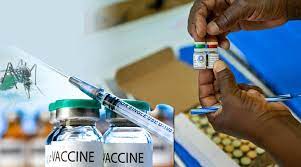
The downstream petroleum market in Nigeria is witnessing a fresh wave of price competition following the Federal Government’s decision to reinstate the naira-for-crude oil exchange policy. This move has triggered a swift response from key players, particularly the Dangote Refinery, which has slashed its ex-depot price of Premium Motor Spirit (PMS) to ₦865 per litre.
The new pricing directive, which includes charges from the Nigerian Midstream and Downstream Petroleum Regulatory Authority, was communicated to fuel marketers last Thursday. While the sale of PMS is now being conducted in naira, other refined products from the refinery continue to be priced in dollars. Additionally, the sale of petrol via coastal vessels remains suspended.
In reaction to the ex-depot price cut, several retail outlets have adjusted their pump prices. SGR, an independent marketer, reduced the price of petrol to ₦899 per litre across its stations in Ogun State, making it one of the cheapest options available along major transport corridors such as the Lagos-Ibadan Expressway and the Sagamu-Ijebu Ode road. This undercut the pricing of other marketers, including Heyden, a known partner of Dangote Refinery, which is retailing at ₦915 per litre in the same region.
Other stations across Lagos and Ogun States have also responded by lowering their prices from the previous highs of over ₦940 per litre to around ₦920 or ₦930. This wave of downward adjustments signals the return of competitive pricing, a trend that had previously been muted under a market dominated by the Nigerian National Petroleum Company Limited (NNPC).
The Dangote Refinery’s strategic pricing shift is viewed as a continuation of its market-disruptive approach since commencing operations in December 2024. Its frequent price adjustments have consistently pressured competitors, including importers, many of whom allege that they are being forced to sell below cost in order to remain in the market.
Fuel importers claim to have suffered significant financial losses estimated at around ₦2.5 billion daily and over ₦76 billion monthly due to abrupt price drops by the refinery. These losses intensified after Dangote cut PMS prices to as low as ₦860 per litre when the naira-for-crude deal was active between October 2024 and March 2025. Many importers have since struggled to sell their products profitably, given that consumers naturally gravitate toward lower-priced fuel.
Despite resistance from groups like the Depot and Petroleum Products Marketers Association of Nigeria (DAPPMAN), which argued that the naira-for-crude policy skewed the market in favor of Dangote, the Federal Government reintroduced the deal. The policy’s reinstatement follows a sharp increase in petrol prices from ₦860 to ₦930 per litre after Dangote temporarily halted the naira-based transactions.
Industry observers view the Federal Government’s move as a strategic attempt to support local refining capacity and reduce Nigeria’s reliance on fuel imports. While some stakeholders interpret the policy as preferential treatment for Dangote Refinery, others argue that the scale of investment made by the refinery justifies government support. The 650,000-barrel-per-day facility has been credited with breaking NNPC’s monopoly on the downstream sector and altering the dynamics of gasoline supply across the Atlantic Basin, impacting European refining margins in the process.
Analysts have warned, however, that the growing dominance of a single refinery could result in anti-competitive practices over time. Concerns about a potential monopoly are growing, especially among importers and independent marketers who fear being priced out of the market if the current trend continues unchecked.
Regulatory authorities such as the Nigerian Midstream and Downstream Petroleum Regulatory Authority and the Federal Competition and Consumer Protection Commission have been urged to ensure a level playing field. Experts argue that fair competition between importers and local refiners is critical for long-term price stability and consumer benefit.
Meanwhile, the Crude Oil Refinery Owners Association of Nigeria has projected that the price of petrol could fall as low as ₦350 per litre if global crude prices drop to around $50 per barrel. Although speculative, such a scenario underscores the potential impact of global oil trends on domestic fuel prices.
As market players adjust their strategies in response to Dangote’s pricing moves and the Federal Government’s policy shifts, Nigerian consumers are beginning to feel some relief at the pumps. However, the sustainability of this downward trend in petrol prices remains uncertain, especially in a market still grappling with foreign exchange challenges, infrastructural constraints, and regulatory ambiguities.





